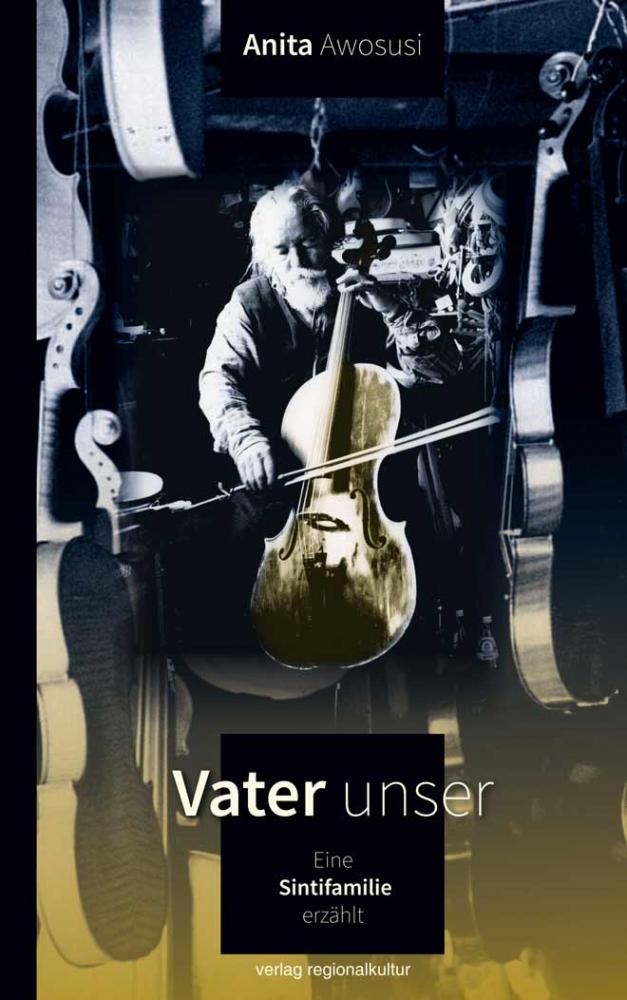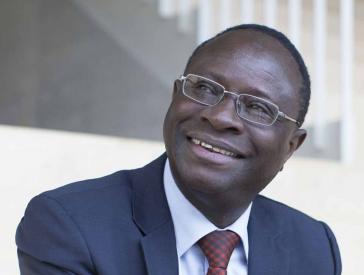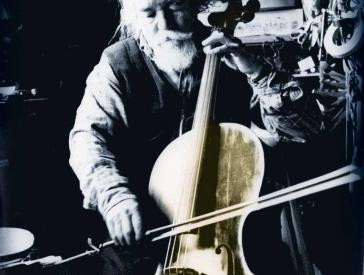Our Father – A Sinti Family Recounts
Three Questions to Anita Awosusi
In our series New German Stories Anita Awosusi presented her book Vater unser – Eine Sintifamilie erzählt (Our Father – A Sinti Family Recounts) in the W. Michael Blumenthal Academy of the Jewish Museum Berlin. In her book the author weaves together her family’s biography, broader historical events, and the aftermath of Nazi rule. She tells the story of her father and at once of her own evolution. As a civil rights activist she still fights today against discrimination and for equal rights and civic participation for the Sinti and Roma peoples and was active for over twenty years at the documentation and cultural center for German Sinti and Roma.
On 6 February 2017 Serpil Polat and Rosa Fava did a short interview with Anita Awosusi and asked her the following three questions:
You entitled your book Our Father – A Sinti Family Recounts. Is the play on the central Christian prayer, the “Our Father”, intentional on your part? If so, what did you want to express with this choice?
The title Our Father came about because my sister and I always say “our father” when we talk about our parents. In addition, my father had a very fundamental role in our family as patriarch. Not to suggest at all that our mother was less respected by us children. But there was a second reason: my beloved aunt Henriette taught me the Christian credo of the “Our Father”. She was very devout, in contrast to Father. She was our father’s sister and a very important figure to me as a child. I was always allowed to spend time with her. Thus indeed, the “Our Father” prayer also had an influence on the book’s title.
What moved you to commit your father’s story to writing in close conjunction with your own biography?
Because I’ve studied National Socialism so intensively in my professional life it occurred to me that, in the years since Father’s death, my sisters and I have been coming to grips with our own family’s history of persecution. This reflection and the fact that the prejudices, the racism against us Sinti and Roma still serve today as the bogeyman of antiziganism, induced me to tell the family story from my own perspective.
You yourself have done a great deal to bring the subject of Nazi crimes against the Sinti and Roma – which had been largely suppressed – to the fore and embed them more firmly in public memory. The same could be said for discrimination, in the post-war period all the way till today. Would you say that Germany adequately acknowledges responsibility for this injustice?
One of the paramount goals of our civil rights campaign was not just to bring the genocide against our minority into the general consciousness, after decades of suppression on the part of the state, but also to make people aware of continuing racist thinking and stereotypes. In the case of our community, the perpetrators rather than the victims still had the prerogative of interpretation for decades after 1945. This set the course in terms of how the state dealt with – and still deals with – Sinti and Roma peoples. Through the 1970s there were hardly any forces in civil society who faced up to the sometimes even state-sanctioned caricatures of “gypsies” and the exclusion of our minority based on those distorted notions. For many decades there simply wasn’t a counterweight from academia or the sciences to point to the racist construction of Sinti and Roma stereotypes. These prejudicial structures are just being unpacked and taken apart now. And when this has been tolerably achieved, then we’ll be able to say that Germany’s responsibility with respect to injustice has been adequate.
The interview was conducted by Serpil Polat (Academy program on migration and diversity) and by Rosa Fava (W. M. Blumenthal Fellow of the Jewish Museum Berlin).
 X
X
In Our Father – A Sinti Family Recounts the author tells her family’s story; published by Verlag Regionalkultur
Citation recommendation:
Rosa Fava, Serpil Polat (2017), Our Father – A Sinti Family Recounts. Three Questions to Anita Awosusi.
URL: www.jmberlin.de/en/node/6267
Interview Series: New German Stories (12)



 X
X















